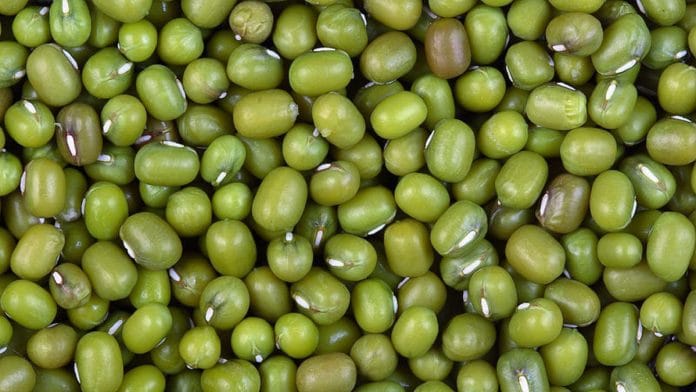New Delhi: To rein in double-digit inflation in yellow peas and green gram (moong dal), the government is considering increasing the import of these two varieties of pulses, ThePrint has learnt.
An inter-ministerial committee that met on 6 September discussed raising the import ceiling on these pulses. “It was decided to open up imports of yellow peas further till sowing period as their prices have shot up,” a senior agriculture ministry official, who did not want to be named, told ThePrint. “We will shortly send a proposal to the commerce ministry to raise the ceiling of import for pulses from the current 6,50,000 tonnes for the financial year 2020.”
Secretaries from the agriculture, animal husbandry, economic affairs, revenue and commerce ministries among others were part of the inter-ministerial committee at the 6 September meeting.
The retail price of yellow peas has been hovering around Rs 73 per kg in September whereas it was Rs 59 per kg last year. Moong dal has also witnessed a similar spike in prices. The current retail price of moong is Rs 80 per kg as against Rs 68 per kg last September.
For 2019-20, the Directorate General of Foreign Trade has issued notifications allowing import of 6,50,000 tonnes of pulses. Besides, India also imports 1,75,000 tonnes from Mozambique under a memorandum of understanding it signed with the African nation.
Also read: Modi govt must treat farmers as businessmen & introduce ease of doing agri-business index
‘Govt trying to keep inflation in check’
With the Reserve Bank of India (RBI) cutting interest rates to support growth, a second official said, the government is trying to keep inflation in check with such moves.
The official said inflation in yellow peas and moong dal has been around 20 per cent and 15 per cent, respectively, as compared to last year for the month of September.
The Consumer Price Index for pulses and its products have also gone through a substantial increase from the corresponding period last year as the index was 118 for October 2018 and 130 for August 2019. The maximum spike was witnessed between May-June 2019 when the CPI increased from 124 to 128.
Import hike could discourage farmers from sowing rabi crop
The first official quoted above said some concerns were raised in the meeting that the increase in import at this time may lead to a decrease in area under cultivation for rabi or winter crops.
Rabi crops are to be sown in the next couple of months.
“Rains in Madhya Pradesh and Rajasthan have delayed the arrival of moong and caused double-digit inflation,” the official added. “If the rain continues, the quality of the crop may suffer. But further import will discourage farmers to sow rabi pulses in the next cropping season.”
As it is, most of the pulses were marketed much below the minimum support price throughout last year, the official added.
Agriculture experts also cautioned that an increase in yellow peas import could increase the risk of adulteration in gram and gram flour (besan).
“Yellow peas are often used to adulterate gram-based products and cheap prices, due to its import, will incentivise the adulteration,” Shweta Saini, a senior agricultural expert at Indian Council for Research on International Economic Relations told ThePrint.
Also read: Farmers fear onion prices will crash as India looks at 3rd consecutive year of bumper crop







The MOONG rate have not yet crossed the MSP rate 7050 of Govt of India when MSP is 7050 of MOONG THAN MOONG DALL RATE SHOULD BE AROUND 9000 It’s upto Govt to decide what they want to increase domestic production which will increase our farmers income or depend only on imports.